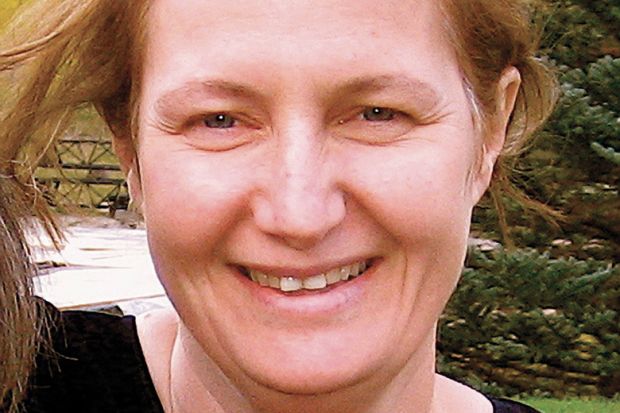Alison Winter was born in New Haven, Connecticut, on 19 November 1965 and went to high school in Ann Arbor, Michigan, although she spent her early childhood in Bonn, Germany, where her mathematician father was carrying out postdoctoral research.
Although her own interests were more literary, he was keen for her to specialise in science. For her first degree at the University of Chicago (1983-87), therefore, she compromised by majoring in the history and philosophy of science and medicine.
After graduating, Professor Winter visited the University of Cambridge and was determined to embark on an MPhil there. She then returned to the US, she once told Times Higher Education, and tried to raise the money for her tuition by “working at a Greek restaurant, a diner, a bank and a Burger King, all at the same time”.
After securing funding, she received both an MPhil (1991) and a PhD (1993) in the history and philosophy of science. Her dissertation on mesmerism was later published as an award-winning book, Mesmerized: Powers of Mind in Victorian Britain (1998).
After serving as a research fellow at St John’s College, Cambridge (1991-94), Professor Winter moved to the California Institute of Technology (1994-2001) and then back to the University of Chicago for the rest of her career, eventually as professor of history, the conceptual and historical studies of science, and the college. Among the courses she taught was one on science, culture and society in Western civilisation that she had herself once taken as an undergraduate.
For her celebrated and hugely ambitious second book, Memory: Fragments of a Modern History (2012), Professor Winter won fellowships from the Guggenheim, Andrew W. Mellon and National Science foundations, which enabled her to explore everything from police interrogations to recovered memories of child abuse and the changing technological metaphors that have been used to illuminate how memory works.
The result was praised by emeritus Yale University historian Daniel Kevles as an “original history of the intertwined theories of memory and attempts to recall past experience, [where] Winter writes with engaging discernment about the clinic and the courtroom, trauma and therapy, neuroscience and neurospeculation”.
“One knows a lot of very clever people in one’s university life,” recalled John Sutherland, emeritus Lord Northcliffe professor of modern English literature at University College London, “but I’ve never known anyone as infectiously brilliant as Alison.”
Professor Winter died of a brain tumour on 22 June and is survived by her husband – fellow Chicago history professor Adrian Johns – and their four children.




